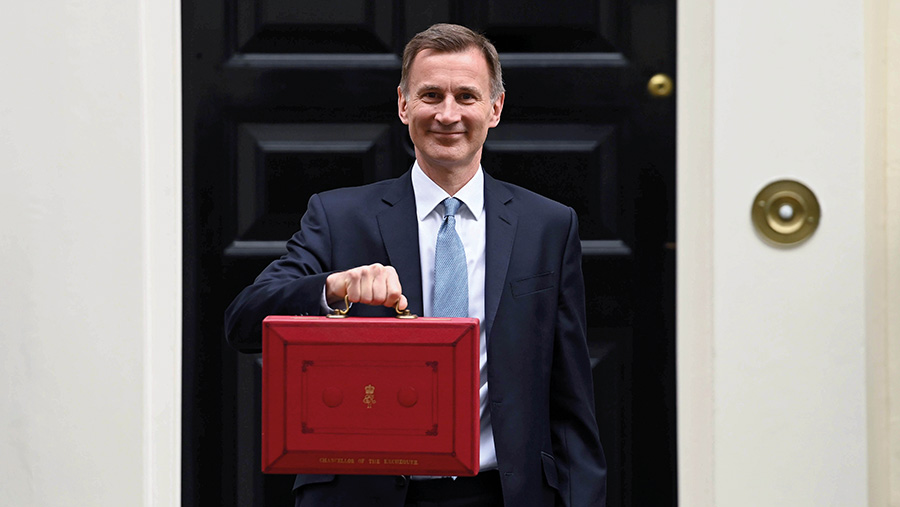Editor’s view: There’s a subtle art to winning ag arguments
 Chancellor Jeremy Hunt © Neill Hall/EPA-EFE/Shutterstock
Chancellor Jeremy Hunt © Neill Hall/EPA-EFE/Shutterstock Too often there is a lot of unhappiness in farming because it feels as if we are on the losing side of the argument of the day.
English upland farmers have been a good example lately, as they feel short-changed by the income-foregone model of Environmental Land Management, which leaves them set to be less compensated for actions than lowland arable farmers.
But are their voices getting heard where it matters – and how do they win the argument?
See also: How upland farmers are pooling resources to plug funding gap
Election winners, and all those who have to win over a room, focus on two things: keeping their allies on side, and gaining enough support from those who are not on their team, but are willing to hear them out.
Jeremy Hunt’s Budget this week was another example of that. There were some typically Tory measures, such as pensions reform for higher earners, which will keep card-carrying party members happy.
There were also some fresh policies to attempt to lock in swing voters, such as the expansion of free childcare.
It is crucial to do both, but no more. If you waste your time on those who are never going to come over to your way of thinking, you’re likely doomed to never see the change you want.
Plain speaking
Winners also find a way to speak to the people they’re trying to influence in their own style.
I’ve been to an awful lot of conferences and it is rare to see someone genuinely impress the audience from the podium.
Farmers, like everyone, value authenticity above almost everything.
People with reputations to protect, such as the leaders of big businesses, frequently choose their words extremely carefully and speak in generalities for fear of unwittingly saying something controversial.
Unfortunately, being guarded in this way often comes across as inauthentic “politician speak” and they fail to connect with those they seek to win over.
The problem also happens in reverse. I have a hunch that farmers – known for their plain speaking – often fail to win over civil servants or politicians because their honesty comes across as aggression or an unwillingness to listen to another point of view.
That means these closeted scheme designers can end up favouring a small circle of farmers who don’t just share their views, but speak their language of middle-class moderation.
Regenerative farming views
I recently chaired a debate on whether regenerative farming was the future for everyone.
The topic was chosen by Future Farmers of Yorkshire, which had assembled an excellent panel with a wide range of viewpoints – or so it seemed to begin with.
By the end, I had concluded that while there were gaps between them, these seemed wider than they were due to the choice of language.
There isn’t really much difference at all between “thinking holistically” and “not fannying about”.
Both are a call to farmers to see the bigger picture and focus on what matters, but I suspect many audience members left feeling there were two camps and they were in the one they’d started the night in.
The winners of arguments – whether on upland payments, broadening regenerative agriculture, or how to enforce high standards in the beef supply chain – will be the ones who best speak the language of those outside their camp.
Bananarama and Fun Boy Three’s “It ain’t what you do it’s the way that you do it” was weird even by the standards of the 1980s, but they had a point.

